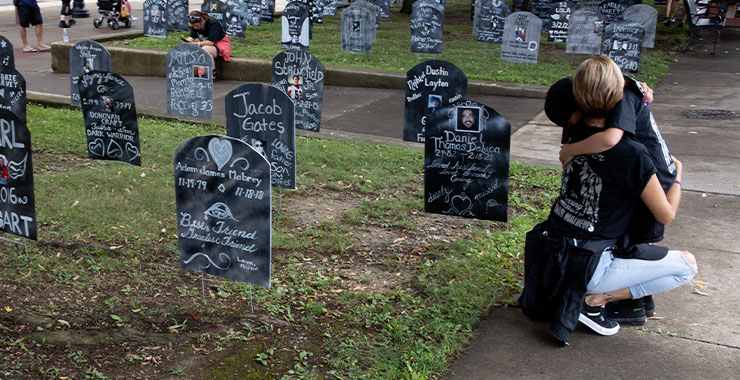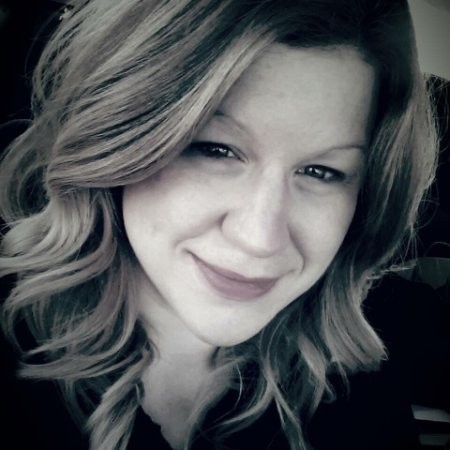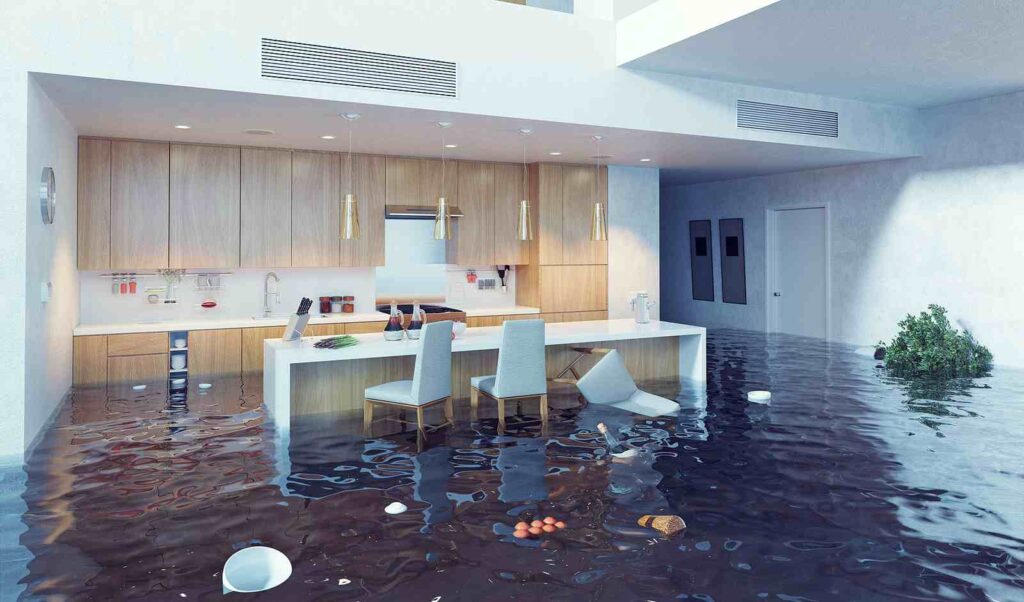When a homeowner passes away, it can be a confusing and emotional time for their loved ones. One of the many questions that might come up is about the homeowner’s insurance policy. Does it still cover the home? What needs to be done to keep the coverage active?
In this article, we will explore what happens to homeowners insurance when the owner dies, and what steps need to be taken to ensure the home remains protected. Understanding these details can help make a difficult time a little bit easier for everyone involved.
Homeowners Insurance Coverage

Homeowners insurance is a type of property insurance that covers losses and damages to an individual’s house and assets in the home. It typically provides coverage for the following:
- Dwelling Coverage: This covers the structure of your home, including the walls, roof, and built-in appliances. It pays for repairs or rebuilding if your home is damaged by covered perils like fire, wind, hail, or vandalism.
- Other Structures Coverage: This covers structures on your property that are not attached to your home, such as fences, sheds, and detached garages.
- Personal Property Coverage: This covers your personal belongings, such as furniture, electronics, and clothing, if they are damaged or stolen. It typically includes coverage for items both inside and outside your home.
- Loss of Use Coverage: Also known as additional living expenses (ALE) coverage, this pays for temporary housing and living expenses if your home is uninhabitable due to a covered loss.
- Liability Coverage: This protects you if someone is injured on your property or if you accidentally cause damage to someone else’s property. It covers legal fees and any resulting settlements or judgments.
- Medical Payments Coverage: This covers medical expenses for guests who are injured on your property, regardless of who is at fault. It is typically a smaller amount compared to liability coverage.
- Additional Coverages: Some policies offer optional coverages, such as flood insurance, earthquake insurance, and scheduled personal property coverage for high-value items like jewelry or art.
How to Cancel PMI After Home Value Rises
Remember, homeowners insurance policies may vary, and it’s important to understand what your specific policy covers. It’s also worth noting that homeowners insurance typically does not cover certain perils such as flooding, earthquakes, or routine wear and tear.
Impact of Owner’s Death on Homeowners Insurance
The death of a homeowner can significantly impact the homeowners insurance policy. Here’s how:
- Policy Continuation: Homeowners insurance does not automatically terminate upon the death of the owner. The policy typically remains active for a certain period, usually around 30 days. During this time, the executor of the estate must notify the insurance company about the homeowner’s death and discuss options for continuing coverage.
- Role of the Executor: The executor is responsible for managing the deceased’s affairs, including the homeowners insurance policy. They must ensure that premiums are paid and the policy remains active during the probate process. The executor may need to update the policy details and possibly switch to vacant home insurance if the property will be unoccupied for an extended period.
- Transfer of Policy: Homeowners insurance does not automatically transfer to the new owner or beneficiary. The new owner must contact the insurance company to either transfer the existing policy or take out a new one.
- Vacant Home Insurance: If the home is expected to be vacant for more than 30 to 60 days, the insurance company may require vacant home insurance. This coverage protects the property from risks associated with being unoccupied, such as vandalism and theft.
- Mortgage Life Insurance: While homeowners insurance does not cover the death of the owner, mortgage life insurance can help by paying off the mortgage if the homeowner dies. This ensures that the property is protected and not lost due to unpaid debts.
Mortgage-Free Home Insurance Guide
Understanding these aspects can help ensure that the property remains protected and that there are no lapses in coverage during the transition period after the homeowner’s death.
How to Transfer Homeowners Insurance After the Owner Dies
Transferring homeowners insurance after the owner dies is not a complicated process, but it requires some steps and communication with the insurance company. Here is a general overview of how to do it:
- Notify the Insurance Company: Contact the insurance company as soon as possible to inform them of the homeowner’s death. Most insurers require notification within 30 days. Provide a copy of the death certificate to the insurance company.
- Discuss Coverage Options: Speak with the insurance company about your options for continuing coverage. This may include transferring the existing policy to a new owner or setting up a new policy. If the home will be vacant for an extended period, discuss the need for vacant home insurance to protect the property.
- Role of the Executor: The executor of the estate is responsible for managing the homeowner’s insurance policy during the probate process. Ensure that premiums are paid to keep the policy active and avoid any lapses in coverage.
- Update Policy Details: The insurance company may need to update the policy details to reflect the new owner or the estate as the policyholder. If there is a surviving spouse listed on the policy, the insurance company can often transfer the policy to their name with minimal changes.
- Secure New Coverage: If the existing policy cannot be transferred, the new owner or executor will need to secure a new homeowners insurance policy. Ensure that the new policy is in place before the old one expires to maintain continuous coverage.
- Consider Additional Coverage: Depending on the circumstances, you may need additional coverage, such as vacant home insurance or mortgage life insurance. Discuss these options with the insurance company to ensure the property is adequately protected.
Does Homeowners Insurance Cover the Death of Owner?

Homeowners insurance does not provide a death benefit or cover the death of the homeowner. Instead, it primarily covers property damage and liability. When the homeowner dies, the policy generally remains active for a short period, typically around 30 days, during which the executor of the estate must notify the insurance company and ensure the policy remains in force.
The executor is responsible for managing the policy, paying premiums, and possibly updating the policy details. If the home will be vacant for an extended period, vacant home insurance may be required to protect the property. Additionally, mortgage life insurance can help by paying off the mortgage if the homeowner dies, ensuring the property is not lost due to unpaid debts.
Insurance for Vacant Property
When a property becomes vacant, especially after the death of a homeowner, it presents a unique set of risks that are typically not covered by a standard homeowners insurance policy. Here’s what you need to know:
- Vacancy and Homeowners Insurance: Most homeowners insurance policies include a vacancy clause. If a home is vacant for a certain period, usually 30 to 60 days, the insurance company may reduce coverage or even cancel the policy. This is because vacant homes are at a higher risk for vandalism, theft, and certain types of damage.
- Vacant Home Insurance: To protect a vacant home, you may need to purchase vacant home insurance. This is a special type of policy that provides coverage for the unique risks associated with vacant properties. It typically covers perils like vandalism, fire, wind, and hail. However, it may not cover water damage, so if the property is in an area prone to flooding, you may need to consider additional flood insurance.
- Cost of Vacant Home Insurance: Vacant home insurance is typically more expensive than standard homeowners insurance. This is due to the increased risks associated with vacant properties. The cost can depend on several factors, including the location of the property, its condition, and the amount of coverage you need.
- Maintaining the Property: Even with vacant home insurance, it’s important to maintain the property to prevent damage. This includes regular inspections, maintaining the yard, securing doors and windows, and winterizing the home if necessary.
Do Condo Owners Need Home Insurance?
Remember, every insurance company has different rules and coverage options for vacant properties. It’s important to discuss your needs with your insurance agent to ensure you have the right coverage.
FAQs
Q 1. What happens to homeowners insurance when the owner dies and the house is left to a trust?
Ans. When a home is left to a trust, the trustee becomes responsible for the property. The trustee should notify the insurance company about the owner’s death and discuss options for continuing coverage. The policy may need to be updated or a new one may need to be issued in the name of the trust.
Q 2. Does homeowners insurance cover funeral expenses?
Ans. Homeowners insurance typically does not cover funeral expenses. These costs are usually covered by life insurance or final expense insurance policies.
Q 3. What happens if the deceased homeowner’s policy lapses?
Ans. If a policy lapses due to non-payment of premiums after the homeowner’s death, the property may be left without coverage. The executor of the estate or the new owner needs to ensure that the policy remains active.
Q 4. Can the new homeowner keep the same insurance company?
Ans. Yes, the new homeowner can choose to stay with the same insurance company, but they will need to take out a new policy in their name. The insurance company will assess the new homeowner’s risk profile and determine the premium.
Q 5. What happens to homeowners insurance when the property is inherited by multiple heirs?
Ans. If a property is inherited by multiple heirs, one option is to transfer the existing homeowners insurance policy into the names of the heirs. However, all heirs would need to agree to this. Alternatively, the heirs could choose to take out a new policy.
Conclusion
In conclusion, homeowners insurance does not cover the death of the homeowner. Instead, it focuses on protecting the property and personal belongings from damage and liability. When a homeowner passes away, the policy remains active for a short period, and the executor must manage it, ensuring premiums are paid and coverage continues.
If the home will be vacant, additional insurance may be needed. Understanding these details helps ensure the property remains protected during this transition. It’s also wise to consider mortgage life insurance to cover the mortgage in case of the homeowner’s death, providing peace of mind for the family.

Luna Haverford is a home insurance specialist with over 4 years of experience in the field. Holding a CPCU (Chartered Property Casualty Underwriter) certification, Luna is dedicated to helping homeowners find the best coverage for their needs. As an author on the ‘FundFinesse’ blog, Luna writes clear, easy-to-understand articles about home insurance.


